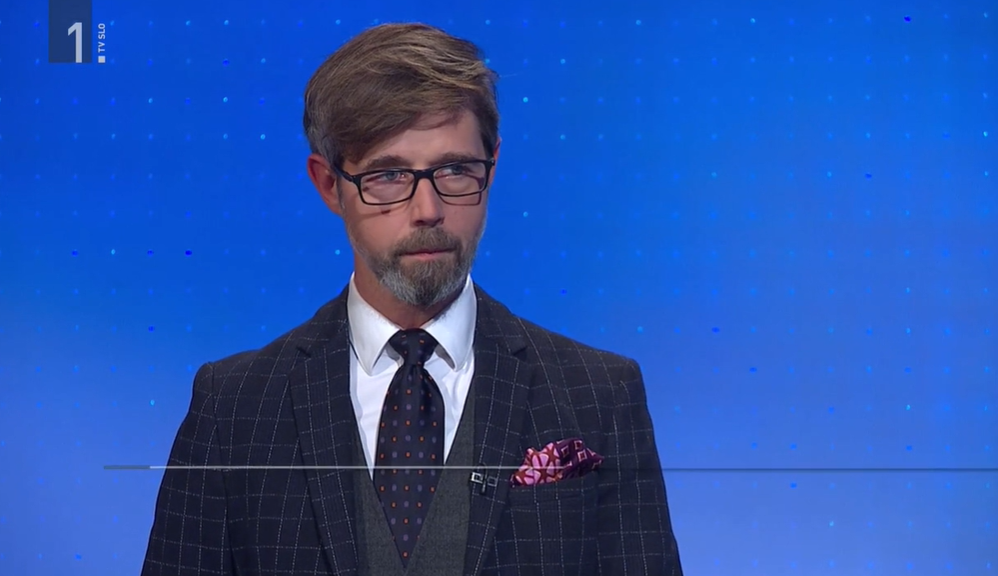The national media outlet Radio-Television Slovenia (RTVS) needs at least 13 million euros to be able to carry out the tasks required of it by the Radio-Television Slovenia Act and to broadcast its programmes. This is what the President of the RTV Council, Goran Forbici, said on Thursday’s episode of the show Odmevi (Echoes). He added that RTVS is in a severe financial crisis and indirectly hinted at government help and a rise in the RTV contribution, which is not foreseen by the legislation. Will the new management, with the help of the government, change the legislation again and not only raise the RTVS contribution but even legislate it?
The President of the RTV Council, Goran Forbici, said on Thursday’s RTVS show Odmevi that the situation at the public institution is “catastrophic” and that they need 23 million euros this year and the next to provide the people with what the Radio-Television Slovenia Act dictates. They are counting on the government’s help to reach into taxpayers’ pockets again – instead of the mandatory RTV contribution, they want to tax people even more from next year onwards.
Given that the current management of RTV Slovenia has accused the former management of mismanagement, one would expect public television to flourish after the “depoliticisation.” But this is not the case. On Thursday, on the show Odmevi, we learned that RTVS is in serious financial trouble. RTVS is expected to end the year with a loss of 10.5 million euros. The RTVS Council has ordered the management to draw up a plan of possible measures by Friday, including the abolition of the music production unit of the second channel, Radio Si, RTV Koper and Maribor.
Forbici: 23 million euros needed
When asked by the host of the show, Starič, what these cancellations of regional centres mean, Forbici said, “I just hope it does not happen, but the fact is that things are getting pretty serious,” stressing that next year it will be even worse. In order to keep the same programme as before, or to make it even better, “we are 18 million euros short.” And they need another 5 million euros to keep the Olympic Games and the football championships on national television. “All the indications are that this year’s hole will be 10 million euros, and next year’s will be 13 million euros bigger.”
Starič then stressed that they are here precisely for the programmes and that the viewers expect them to provide said programmes, to which Forbici assured that Wednesday’s decision on the cancellations does not mean an actual cancellation, but that a financial assessment of possible measures is needed, which will follow in the next month and a half.
Forbici: The RTV contribution is also too low due to salary increases
Forbici explained that negotiations with the government are also ongoing and that there are talks about some possibilities, “a few extra millions”. Forbici tried to make his points seem less serious, pointing out as key that “the problem has a long beard,” and that the problem is not only something that was created in the last two years. The new management, after the so-called depoliticisation, made many promises, but in taking over state television, they were not interested in the fact that state television, which is paid for by everyone, should be available to all, with impartial, objective, and varied content. This is not the case, although Forbici claimed on Odmevi that it is. Not only are they demanding that the RTV contribution be paid, despite the fact that they are offering only shows that follow a certain mindset that not everyone shares, but now they even want the contribution to be increased.
Instead of a contribution, progressive taxation may be in store for next year
“The key problem is that the RTV contribution has not been raised for 11 years, that it is not adjusted to inflation, while the costs, not only because of inflation but also because of the increase in the salaries of civil servants, are going up,” said Forbici, who added that he expects the government to meet them halfway. “The question is whether it will be able to help us enough – especially based on the size of the financial hole expected.” Ironically, the very government that helped them “take over” the management of RTV has recklessly raised salaries despite all the warnings that this would have major consequences. “The world is in the situation it is in, and it is catastrophic,” Forbici said. Starič then reminded him that the new RTV law does not foresee inflation and a rise in the contribution, and she further asked whether they intend to intervene in the legislation and change it.
According to Forbici, the proposal to amend the legislation in order to stabilise the funding of the public institution is already on the table, saying that this proposal has been discussed since the first session and that everyone, including the government, is aware of it. “Discussions are underway to open up the law next year, not only in the direction of harmonising the subscription fee, but also to change the funding model itself, to move from a subscription fee to a tax contribution that is paid progressively,” Forbici said, without a shred of a guilty conscience.
Tanja Brkić


